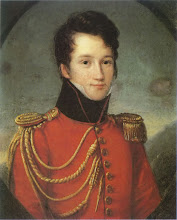Poems from the Ancient Egyptian
During
the New Kingdom (1567-332 BCE), a poetry of intense feeling developed in Egypt
After
twenty-seven centuries
Of dust and
darkness
Blown like a
leaf
From life to
life,
I rise at last
To bathe again
in the clear pools of your eyes,
Pure as Nile water,
Where the holy ibis
bathes at dawn,
Veiled with the
storm clouds of your hair.
He
recalls his dying vow to rejoin her.
My wound
Burnt like the
sacred fire of the Magi.
Upon your skin
Cool as the
water lily,
White as
papyrus,
I wrote in my
heart’s blood:
‘Death shall not
part us.’
He
recalls her mourning for him.
As the sacred Nile in flood,
Or salt waves of
the Great Green[4],
So were the
tears of blood,
You shed for me,
unseen[5].
On
his death-bed, he knew they were to be parted for centuries for offending the
gods.
Dying, I
glimpsed you in some far-off life,
And kissed your
eyelids shut, tasting your tears.
The gods are
cruel! We who were ever one
Stretch out vain
hands across the gulf of years.
He
swears his love is eternal
Like Seti, the
great lion
I led to battle before
my high-plumed captains,
My passions
slumbered.
Tread softly,
Nofret![6]
Devouring time
shall never blunt those paws.
He
implored the Goddess to grant them rebirth together.
As the fallen
obelisk
Of a vanquished
god
Lies whelmed in
sand,
So slept our
love
For endless
centuries,
Raise it anew, O
Hathor![7]
Great goddess,
grant us life.
Their
undying love for each other has finally brought them together.
As monkeys sport
Upon the islands
of the Cataract,
So leapt my
heart
To hear your
gentle feet upon my stairs.
Seeing your
penitent tears bathe my face,
The gods were
merciful, and granted grace.
[1] Princeton Encyclopedia of Poetry and Poetics,
Macmillan Press, London and Basingstoke ,
1975, 214a. Several excellent translations of these love poems are extant,
among which we may single out B. de Rachewiltz, Liriche Amorose degli antiche Egiziani, Roma, 1955 and G. Nolli, Canti d’amore dell’antico Egitto, Napoli , 1959.
[2] The
XXXth Dynasty was extinguished by Alexander III of Macedonia
[3] The
titles have been appended for clarification and are not a feature of the
original.
[4] The Mediterranean .
[5] Because
his eyes were already closing in death.
[6] His
wife.
COPYRIGHT (C) 2010 J D FRODSHAM




No comments:
Post a Comment